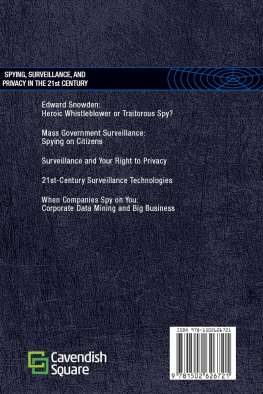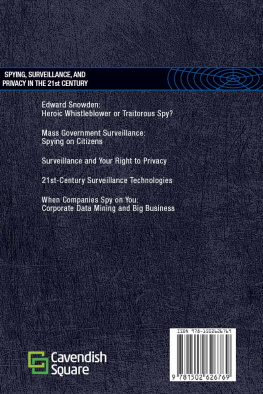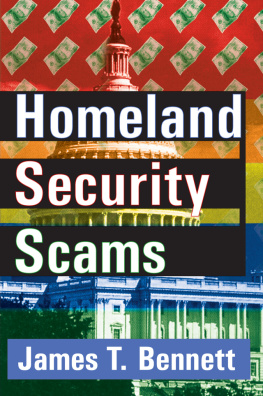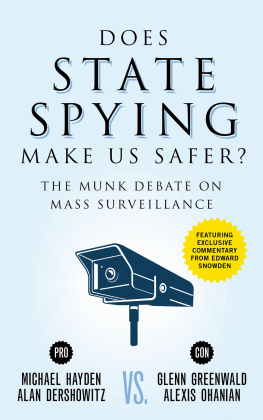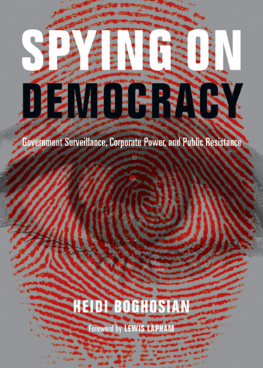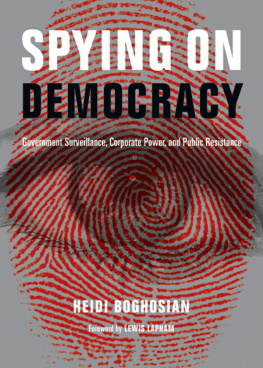Historical texts often reflect the time period in which they were written, and new information is constantly being discovered. This book was originally published in 1977, and much has changed since then. While every effort has been made to bring this book up to date, it is important to consult multiple sources when doing research.
Copyright 1977 by Jules Archer
Foreword 2017 by Sky Pony Press, an imprint of Skyhorse Publishing, Inc.
First Sky Pony Press edition, 2017
All rights reserved. No part of this book may be reproduced in any manner without the express written consent of the publisher, except in the case of brief excerpts in critical reviews or articles. All inquiries should be addressed to Sky Pony Press, 307 West 36th Street, 11th Floor, New York, NY 10018.
Sky Pony Press books may be purchased in bulk at special discounts for sales promotion, corporate gifts, fund-raising, or educational purposes. Special editions can also be created to specifications. For details, contact the Special Sales Department, Sky Pony Press, 307 West 36th Street, 11th Floor, New York, NY 10018 or .
Sky Pony is a registered trademark of Skyhorse Publishing, Inc., a Delaware corporation.
Visit our website at www.skyponypress.com.
10 9 8 7 6 5 4 3 2 1
Library of Congress Cataloging-in-Publication Data is available on file.
Series design by Brian Peterson
Cover photo credit: Thinkstock
ISBN: 978-1-63450-191-0
EISBN: 978-1-5107-0710-8
Printed in the United States of America
For Kerry Russell Archer, MD
CONTENTS
FOREWORD
If you picked up this book thinking, All right, James Bond! youre partially right. Jules Archers Superspies includes plenty of top secret missions, and yes, there are exploding buses, overthrown dictators, toothpick-and-olive-martini-glass recording devices, and codenames (Pussy) Galore for you James Bond fans. But Archer isnt writing a novel, and his top secret stories sound more like horror tales when you realize theyre actually real. Instead, its his job to illustrate how chilling superspies and their tactics are when used against American citizens. So who are these superspies, and what alarms Archer so badly about them?
Youre probably already familiar with the FBI and the CIA, but they arent the only American superspies. Archer includes chapters on state and city governments spying on their residents, private eyes (which is as noir as it sounds), corporate espionage, and even presidents like LBJ and Nixon.
Someone who really frightened Archer was none other than the top spy himself, J. Edgar Hoover, founder of the FBI. Lets just say Kim Kardashian had nothing on Hoovers love of the limelight, and Archer happily dives into his dirty laundry, including burglary to get dirt on enemies and his intense distrust of the Civil Rights movement.
Not stopping there, Archer tells of CIA agents in Egypt and under the Pacific Ocean, assassination attempts, bribery, and more in the nicknamed Department of Dirty Tricks. He goes into the CIAs birth after the attack on Pearl Harbor in 1941 and the dismay President Truman felt when he realized his intelligence gathering agency was also wearing cloaks and wielding daggers.
From all this, its clear Archer disliked the methods of his eras superspy agencies. When he talks of spying at home by the FBI and by local state and police forces, hes referring to their spying on Vietnam War protesters and Civil Rights activists. But he could just as easily be talking about the National Security Agency (NSA) and the fallout after whistleblower Edward Snowden leaked evidence of them spying on millions of innocent American citizens. Its not a thing of the past. Its an issue of the present. Is every mans home his castle? Think only your friend is viewing that ten-second Snapchat of you jumping over a DO NOT TRESPASS sign? Think again.
Perhaps its smart and even commonsense to be cautious, because theres plenty of uproar about these same agencies today. Maybe there will always be something to fear in their secretive movementsall the unsaid, undercover acts that happen during peacetime, even against our allies. Archer wrote his book in the seventies, but in more recent news, Germanys Chancellor Angela Merkel was not exactly happy when it was leaked in 2013 that the NSA allegedly tapped her phone to listen in on her conversations.
Phone tapping isnt new. Its what helped bring President Nixon down during the Watergate scandal discussed in chapter thirteen, Government Criminality Exposed . Its also not the only way spies gather intelligence. Archer was concerned at one point that the government would start using advanced technology to intercept our brain waveswhich sounds pretty far out there, but todays technology is just as scary. The amount of information the government can obtain on you is expansive, and the way they do it wasnt even in a spys wildest dreams forty years ago. Now, eBay, Amazon, and Facebook have the ability to know more about us than our own mothers just by analyzing our clicks and buys, and the government has access to their information through programs such as Prism.
Thanks to the digital revolution, we share more data about ourselves over the Internet and on phone calls than ever before, giving the government more reasons to want to know who were talking to and about what. The biggest change to our privacy is the Patriot Act. Just like after the attack on Pearl Harbor, the attack on the World Trade Centers in New York on September 11, 2001 spurred President George W. Bush to sign a bill that authorized the NSA to tap phones without a warrant; track text messages, emails, and bank transactions; and hack into all sorts of phone and computer programs of anyone suspected of being a terrorist. The government can even check out library records to see what youve been reading, among other, more secret powers. Since the Snowden leak, there has been some outrage, but I doubt Archer would believe theres been enough.
While reading this book, you should also think about how far weve come. All of the 1984 -style fears that Archer lays out in the last chapter Is Big Brother Watching You? have already come true. Theres 24-hour surveillance on streets, and even clothing stores ask for your phone number and email address. Your habits are the hottest commodity today.
If it sounds like Archer is just trying to scare you into not trusting the government or police (or your favorite shoe shop), hes not. Archer knows that theres tons of helpful things superspies, including the NSA, do. As a result of all that snooping, they have broken up drug cartels, caught credit card frauds, and busted other bad guys. You definitely want the police chasing down terrorists and risking their lives to protect yours. But Archer wants us to decide where we draw the line and to think about how far were willing to let superspy agencies go in the name of order and safety.
Throughout Archers book, theres a very clear point being made: America is not free if its citizens privacy is invaded. Its even worse if theyre not aware of the privacy invasions. What Archer really wants is for citizens to speak up and speak out against intelligence-gathering during peacetime. He wants you to use your vote in an educated manner and not be complacent. He warns about getting too lost in daily life that you let the government do whatever they want. As free citizens, we dont belong to the government. It works for us .
Always remember that.








